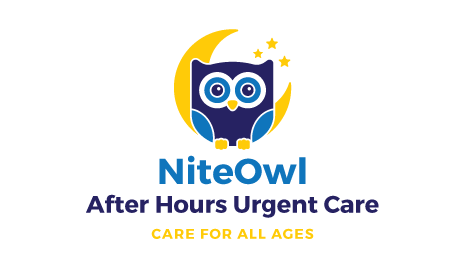 It’s better to be safe than sorry. That’s why we encourage parents to always err on the side of caution, and seek medical care if they are uneasy. While the wait and see method may be appropriate in certain situations, these symptoms should not be ignored:
It’s better to be safe than sorry. That’s why we encourage parents to always err on the side of caution, and seek medical care if they are uneasy. While the wait and see method may be appropriate in certain situations, these symptoms should not be ignored:
High Fevers: Not only is the temperature on the thermometer important, but so is your child’s disposition. If an infant under 3 months experiences a temperature over 100.4, seem medical care immediately. Fevers caused by bacterial infections can spread quickly through the body. Fevers are not as vital an indicator of illness for children over age 2, especially they are hydrated and behaving as normal.
Seek medical care immediately for fevers of 100.4F in infants younger than 3 months; temperatures higher than 101F in babies 3 to 6 months; or higher than 103F in children ages 6 months to 2 years.
Long-Lasting Fevers: If acetaminophen or ibuprofen don’t lower your child’s fever within 4 to 6 hours, it is important to seek care. Long lasting fevers could be a sign that the infection is too strong for the body to fight on its own. Typical fevers caused by colds or the flu should go away within 5 days. Fevers lasting longer can indicate bacterial infections.
Fever with Headache: It is important to visit your pediatric urgent care clinic if you child is suffering from a fever with a head or neck ache or if they are experiencing a rash with red dots or one that is bruise like. These can all be signs of meningitis.
Circle Shaped Rash: Rashes are common, but a ring shaped rash with a pale center spot can indicate Lyme disease. Splotchy raised rashes, unexplained bruising and pinpoint spots under the skin all require immediate medical attention as they can signify allergic reactions, blood disorders or other serious conditions.
Sudden Stomach Pain: Excruciating pain in your child’s lower right side could be a sign of appendicitis. A stomach virus is typically accompanied by a fever, vomiting, diarrhea, and stomachache. With appendicitis, there is occasionally diarrhea then abdominal pain followed by vomiting, pain and fever.
In children under 4, call your doctor or visit our Chattanooga pediatric urgent care clinic if they are experiencing severe stomach pain, cramps or changes in their stool.
Headaches and Vomiting: Headaches with vomiting that occur in the middle of the night or early morning can indicate a migraine. While they are not especially dangerous on their own, they can be a sign of larger health issues.
Decreased Urination: Decreased urination can be a sign of dehydration and should be treated immediately. It is important to have your child drink more fluids as severe dehydration can lead to shock. Other signs associated with dehydration include: dry lips and mouth, dry skin, excessive vomiting or diarrhea.
Blue Lips: Breathing problems are especially critical when they are occurring in the lungs, rather than the chest. Labored breathing, whistling noise, discoloration around the mouth and panting are all signs of breathing distress.
Swollen Face: Allergic reactions are often accompanied by swollen lips, tongue and eyes. Additionally breathing problems, itchiness, vomiting and hives may occur. Over the counter antihistamines, such as Benadryl, can be administered. If your child experiences severe breathing problems, seek immediate emergency medical care.
Vomiting After Falling: A fall when your child is less than 6 months old, or has obvious neurological changes like confusion or loss of consciousness is an emergency situation and immediate medical care is necessary. Falls are less problematic in children over 6 months of age if they fall no greater than the distance of their height.
For medical care after your pediatrician’s office has closed, contact the team at our pediatric urgent care clinic.
